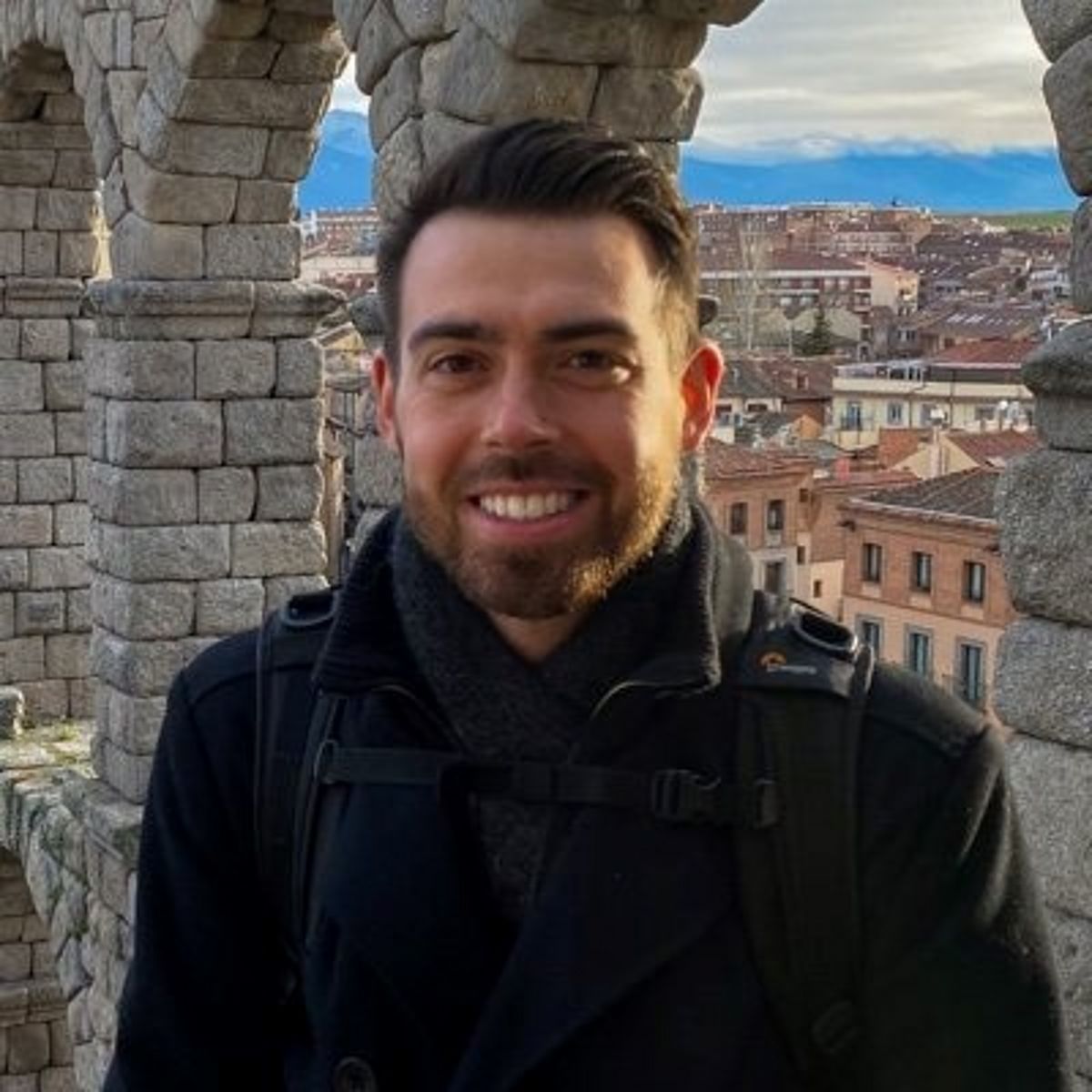Dr. Tyler J. Carrier

Forschungsbereich 3: Marine Ökologie
FE Marine Symbiosen
Büro:
Raum: 4.519
Telefon: +49 431 600-4486
E-Mail: tcarrier(at)geomar.de
Adresse:
Wischhofstraße 1-3, Gebäude 5, Büro: 4.519
D-24148 Kiel
Forschungsinteressen

Wirbellose Meerestiere und ihre Lebensstadien leben in engem Kontakt mit der Umwelt, zu der auch die mikrobielle Welt gehört. Meine langfristigen Forschungsziele bestehen darin, das funktionelle Zusammenspiel zwischen den Fortpflanzungs- und Entwicklungsstadien wirbelloser Meerestiere und symbiotischen Mikroorganismen zu verstehen und zu ergründen, wie sich diese Partnerschaften entwickeln und für das Leben im Plankton entscheidend sind. Zu diesem Zweck kombiniere ich regelmäßige Feldversuche, die die ozeanographischen Bedingungen simulieren, mit modernen molekularbiologischen Techniken. Dieser integrierte Ansatz hat es mir und meinen Kollegen ermöglicht, eindeutige Verbindungen zwischen der Larvenentwicklung, der phänotypischen Plastizität und der Entwicklung der Lebensgeschichte mit bestimmten symbiotischen Mikroorganismen zu finden. Derzeit testen wir Hypothesen für ein funktionelles Zusammenspiel zwischen Larven und ihren Symbionten sowohl bei Schwämmen als auch bei Stachelhäutern.
Wissenschaftlicher Werdegang
2020– Associated Researcher: CRC 1182, Kiel University, Germany
2020– Postdoctoral Fellow: GEOMAR – Helmholtz Centre for Ocean Research, Germany
2019 Visiting Researcher: Smithsonian Tropical Research Institute, Panama
2018 Visiting Researcher: Sven Lovén Centre for Marine Infrastructure, Sweden
2018 Honorary Associate: University of Sydney, Australia
2016–9 NSF Graduate Research Fellow: UNC Charlotte, USA
2016, 9 Visiting Graduate Researcher: Friday Harbor Laboratories, USA
Ausgewählte Publikationen
Kustra, MC & TJ Carrier. 2022. On the spread of microbes that manipulate reproduction in marine invertebrates. The American Naturalist.
Carrier, TJ & JS McAlister. 2022. Microbiota associated with echinoid eggs and the implications for maternal provisioning. Marine Ecology Progress Series.
Carrier, TJ, SE Beaulieu, SW Mills, LS Mullineaux, & AM Reitzel. 2021. Larvae of deep-sea invertebrates harbor low-diversity bacterial communities. Biological Bulletin 241: 65-76.
Carrier, TJ*, BA Leigh*, D Deaker, H Devens, GA Wray, SR Bordenstein, M Byrne, & AM Reitzel. 2021. Microbiome reduction and endosymbiont gain from a switch in sea urchin life history. Proceeding of the National Academy of Sciences 118: e2022023118.
Carrier, TJ, HA Lessios, & AM Retizel. 2020. Eggs of echinoids separated by the Isthmus of Panama harbor divergent microbiota. Marine Ecology Progress Series 648: 169-177.
Carrier, TJ & AM Reitzel. 2020. Symbiotic life of echinoderm larvae. Frontiers in Ecology and Evolution 7: 509.
Schuh, NW, TJ Carrier, CS Schrankel, AM Reitzel, A Heyland, & JP Rast. 2020. Bacterial exposure mediates developmental plasticity and resistance to lethal Vibrio lentus infection in purple sea urchin (Strongylocentrotus purpuratus) larvae. Frontiers in Immunology 10: 3014.
Carrier, TJ & AM Reitzel. 2019. Shift in bacterial taxa precedes morphological plasticity in a larval echinoid. Marine Biology 166: 164.
Leach, WB*, TJ Carrier*, & AM Reitzel. 2019. Diel patterning in the bacterial community associated with Nematostella vectensis. Ecology and Evolution 9: 9935-9947.
Carrier, TJ, S Dupont, & AM Reitzel. 2019. Geographic location and food availability offer differing levels of influence on the bacterial communities associated with larval sea urchins. FEMS Microbiology Ecology 95: fiz103.
Carrier, TJ & AM Reitzel. 2019. Bacterial community dynamics during embryonic and larval development of three confamilial echinoids. Marine Ecology Progress Series 611: 179-188.
Carrier, TJ, K Wolfe, K Lopez, M Gall, DA Janies, M Byrne, & AM Reitzel. 2018. Diet-induced shifts in the crown-of-thorns (Acanthaster sp.) larval microbiome. Marine Biology 165: 157.
Ketchum, RN, EG Smith, GO Vaughan, BL Phippen, D McParland, NA Mansouri, TJ Carrier, JA Burt, & AM Reitzel. 2018. DNA extraction method plays a significant role when defining bacterial community composition in the marine invertebrate Echinometra mathaei. Frontiers in Marine Science 5: 255.
Carrier, TJ, J Macrander, & AM Reitzel. 2018. A microbial perspective on the life-history evolution of marine invertebrate larvae: if, where, and when to feed. Marine Ecology 39: e12490.
Carrier, TJ & AM Reitzel. 2018. Convergent shifts in host-associated microbial communities across environmentally elicited phenotypes. Nature Communications 9: 952.
Du Clos, KT, IT Jones, TJ Carrier, DC Brady, & PA Jumars. 2017. Model-assisted measurements of suspension-feeding flow velocities. Journal of Experimental Biology 220: 2096-2107.
Carrier, TJ & AM Reitzel. 2017. The hologenome across environments and the implications of a host-associated microbial repertoire. Frontiers in Microbiology 8: 802.
Carrier, TJ, SD Eddy, & S Redmond. 2017. Solar-dried kelp as potential feed in sea urchin aquaculture. Aquaculture International 25: 355-366.
Oulhen, N, A Heyland, TJ Carrier, V Zazueta-Novoa, T Fresques, J Laird, T Onorato, DA Janies, & GM Wessel. 2016. Regeneration in bipinnaria larvae of the bat star Patiria miniata induces rapid and broad new gene expression. Mechanisms of Development 142: 10-21.
Oulhen, N, BJ Schulz, & TJ Carrier. 2016. English translation of Heinrich Anton de Bary’s 1878 speech, ‘Die Erscheinung der Symbiose’ (‘De la symbiose’). Symbiosis 69 (3): 131-139.
Carrier, TJ, BL King, & JA Coffman. 2015. Gene expression changes associated with the developmental plasticity of sea urchin larvae in response to food availability. Biological Bulletin 228 (3): 171-180.


